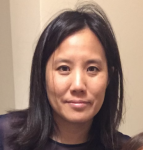In a campaign year full of candidates, one voice in particular reverberates with concerned expertise about the direction humanity will take in this century's technological revolution. Andrew Yang's book, The War on Normal People: The Truth About America's Disappearing Jobs and Why Universal Basic Income Is Our Future, presents both a sober view of unregulated tech and its effect on humanity, followed by a new vision of society where humans assert mastery over their own destiny in coexistence with machines and artificial intelligence.
During this last exhausting and even baffling decade, Americans have watched countless politicians so flummoxed by the tech industry that they are unable to regulate or even engage with it. Writers like Shoshana Zuboff have bemoaned the epistemic inequality created by data hoarders, like Google and Facebook. Such tech giants keep our data hostage and use it to create a system of surveillance capitalism, according to Zuboff. In recent years, Mark Zuckerberg’s testimony in front of the Senate starkly revealed the large divide between the internet generation and government culture. While interacting with Zuckerberg, many politicians failed to strategically demonstrate the lack of data regulation on Facebook and instead exposed ignorance about how Facebook tools work. Such lack of tech knowledge on the part of many government officials is particularly alarming since coding language and culture design most daily human interaction — we organize our lives with coding imbedded in apps, social media and texts.
But 2020 might bring hope. Yang knows the terrain of tech and business, and his smooth navigation of it helps us absorb both his message about the dangers of unregulated tech and the his implication that government might work with, rather than in spite of, technology. Despite exposing how the lack of tech regulation and oncoming automation will decimate the incomes and livelihoods of many, Yang is reassuringly unintimidated by Silicon Valley, coder culture and technology. And he articulates an economic plan to combat the oncoming apocalypse.
The War on Normal People elegantly mixes data with theory: Yang explains how mindsets of abundance and scarcity separate people and are both the result and cause of economic division. He uses the terms abundance and scarcity to describe mindsets. Abundance thinkers will create ideas for startups; those plagued by scarcity can be paralyzed and not participate in economic growth. He provides data to back this up; those from economically stable families tend to try to become entrepreneurs and create business. While tech has enjoyed the entrepreneurial abundance of new business; its unregulated growth has left behind in its wake a dying retail sector (thanks Amazon!) and trends of unemployment. Yang’s first sentence reads: “I am writing from inside the tech bubble to let you know that we are coming for your jobs.” Yang can think like a techie but at the same time decry tech’s relentless capitalistic strategies as often heartless and lacking in humanity.
This ability to understand multiple positions is what makes him such a natural at creating suspense and character as writer and also a master at campaigning in the past year. Yang rose from being a relative unknown to the top candidate hashtag during the Des Moines debate that he did not attend due to a polling snafu (#AmericaNeedsYang – 24,244 tweets). After being mishandled or ignored by the press, and even having another person’s photo being used to represent him on NBC, he’s now charmed audiences on Bill Maher, Stephen Colbert and other pundit shows, as well as showed a remarkable knack for captioning New Yorker cartoons (check it out). In no other presidential race has tech been the forefront concern that influences the economy and societal behavior so profoundly — and Yang’s team uses social media with genius in its timing and technicality, making sure his humor makes the meme rounds.
Yang upends many assumptions about education and the way in which education shapes the economic futures of citizens. Among his observations include: “College isn’t always the answer,” since there may be greater demand and employment in service industries that require technical training. He points out that other countries recognize this pattern, such as Germany, which boasts 59 percent enrollment in trade schools versus 6 percent in the United States. Since there are so few outlets for AI education or learning to convert computer interest into trade skills, programmers or gamers form their own communities and further disengage from the national socio-economy. He delves into how video games may be such a cheap and efficient form of amusement that people — particularly young males — may prefer them to being employed and finding their mature identity. They live at home to manage their video game habits. They’d rather be CEO of a virtual fantasy than a real-life minimum wage earner. On the other end, programmers end up at the gaming companies working unpredictable and sometimes crushing hours to feed a growing number of gamers, and their hours are often unregulated.
Yang says our woes are only growing. For example, the opioid crisis persists due to job losses and the chronically inefficient and expensive healthcare system. And Yang lists a host of other problems that plague the American people: “We are getting older; we don’t have adequate retirement savings; we are financially insecure; we use a lot of drugs; we are not starting new businesses; we’re depressed; we owe a lot of money, public and private; our education system underperforms; our economy is consolidating around a few mega-powerful firms in our most important industries/our media is fragmented; our social capital is lower; we don’t trust institutions anymore.” This depressing outlook does not lack a remedy, Yang asserts; our acceptance of them will motivate change in the form of universal basic income and a renewed trust in the communities, institutions and ideals that we have long since abandoned as we’ve become drenched in cynicism, inaction and hopelessness without realizing it.
Against a backdrop of data and ideas, Yang illustrates his concerns with real stories about individuals — focus on a diverse set of normal people, be it a single mom or a truck driver. Through these stories we start to see the shifts in personal realities that humanize the broader economic trends. The game has changed for surviving in the world, and people working three jobs has become one of them. Yang writes:
The relationship between humanity and work involves money, but in something of a negative correlation. The jobs and roles that are the most human and would naturally be most attractive tend to pay nothing or close to nothing. Mother, father, artist, writer, musician, coach, teacher, storyteller, nurturer, counselor, dancer, poet, philosopher, journalist — these roles are often either unpaid or pay so little that it is difficult to survive or thrive in many environments. Many of these roles have high positive social impacts that are ignored by the market. On the other hand, the most lucrative jobs tend to the be the most inorganic. Corporate lawyers, technologists, financiers, traders, management consultants and the like assume a high degree of efficiency. The more that a person can submerge one’s humanity to the logic of the marketplace, the higher the reward.
This evaluation is not comprehensive, but it expresses the important sentiment that people who actively contribute to society have been completely devalued. While there are some professions that are not devalued either spiritually or financially — for example, well-known musicians or scientists are often remunerated at scale financially and fulfilled spiritually, these jobs are exceptions. Overall, the market has generated multiple inequities that impact communities, such as education costs, pharmaceuticals and health care. The distribution of value needs regulation, and Yang proposes that the barometer of regulation be human-centered rather than productivity-centered. He asserts that certain experiences should be privileged as worthy and valuable despite not playing a role in corporate markets, such as parenting, teaching, preventative care, journalism, serving the poor and the environment. In other words, we should be spending more time meditating and eating properly than scrambling to pay for medical bills collected after bad habits, following inhumane job schedules or doing drugs that drive us to lose our health.
The hopeful chapters at the end of the book provide a picture of a society that seems much more just and equitable than what now exists, and Yang describes such a society as including social engagement, cultural vibrancy, public safety and a good use of resources. While Yang admits he is “no fan of big government,” he says that the richest philanthropists and companies who try to engage in philanthropy often "operate at the wrong scale” or “has multiple stakeholders that make big, long-term commitments difficult to sustain.” Most of these guys are “waiting for government to reinvent itself,” and Yang proposes some interesting aspects for reinvention. In particular, he says that presidents are now becoming too cozy with corporations since they provide their bread and butter after a four- or eight-year term. Rather than allowing presidents to make their real money after they leave office, they should get “a raise from their current $400,000 to $4 million tax-free per year…” upon the condition that they would not accept board seats or speaking engagements after they leave office. This would keep them free and clear of any need to make powerful people happy,” Yang suggests. He also advises that the same be done for other regulatory agency heads so that they could make decisions without weighing their own personal consequences. Other solutions Yang proposes are to enforce accountability for business that advantage capital over human interests; for example, “for every $100 million a company is fined by the Department of Justice or bailed out by the federal government, both its CEO and its largest individual shareholder will spend one month in jail. Call the new law the Public Protection Against Market Abuse Act.”
Yang’s solutions show that an experienced tech and financial entrepreneur could be a wise choice to reinvent the government and redesign our communities so that they are less device-centered and more people-focused. But Yang offers even more than simply structural suggestions. While presenting practical solutions to human fallibility, he also poetically recognizes human nature and what it takes to bring out the best in us: “Through all the doubt, the cynicism, the ridicule, the hatred and anger, we must fight for the world that is still possible. … Fight through the whipping branches of selfishness and despair and resignation. Fight for each other like our souls depend on it.” These last lines put his mission into perspective: human beings can always be better, and the context which drives them to improve themselves and their world undeniably deserves attention.










Comments